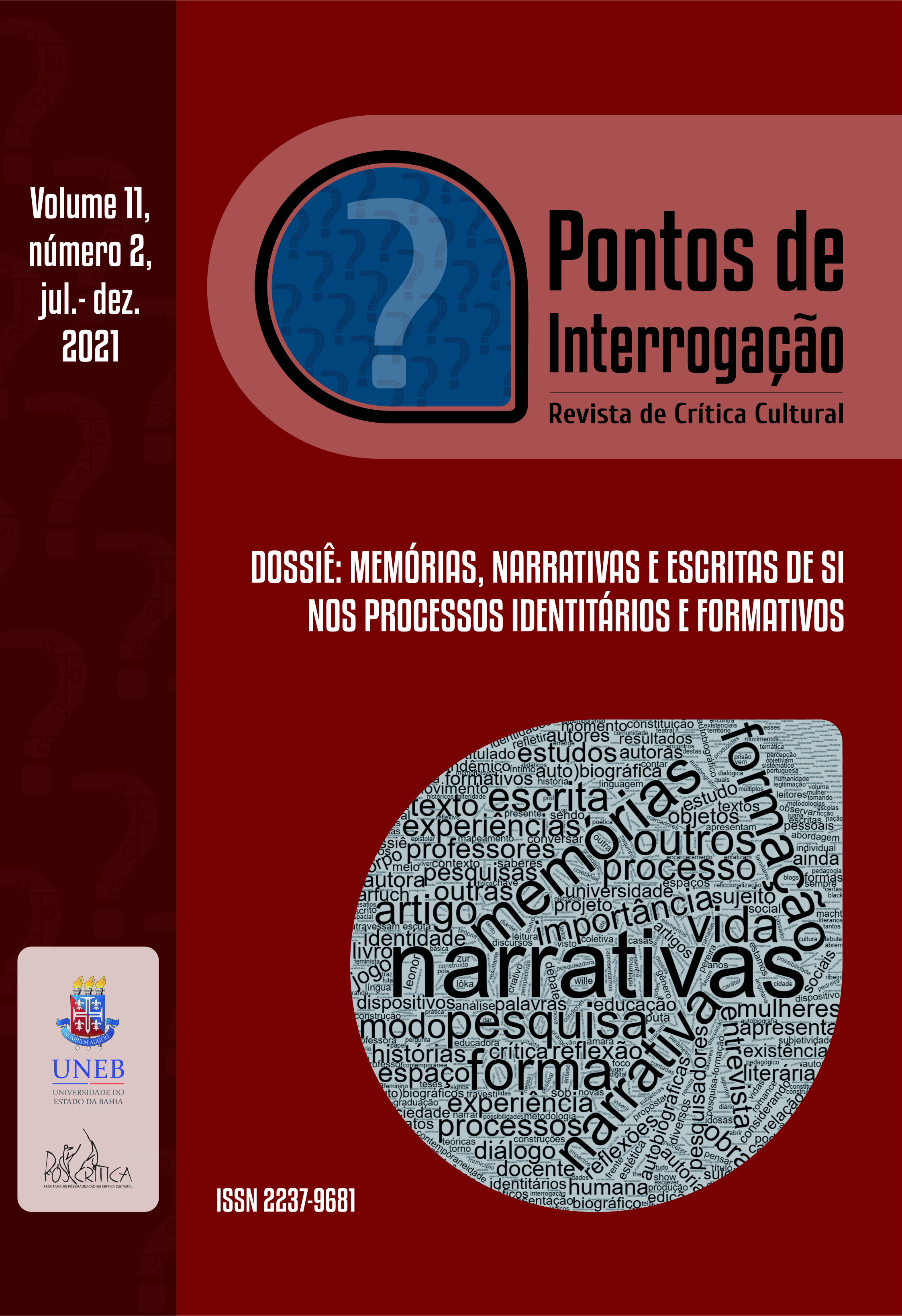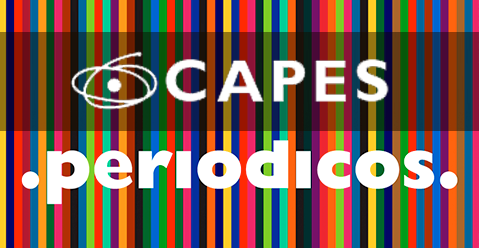Memories in old age and the narrative of the self as triggered by biographical objects
DOI:
https://doi.org/10.30620/pdi.v11n2.p137Keywords:
Biographical object, Old age, Memory, Reminiscence, PsychoanalysisAbstract
The goal of this study was to analyze the role of biographical objects in old age, using the psychoanalysis theoretical-methodological framework about memory, old age, and narratives about oneself. Biographical objects are personal effects that have accompanied the elder throughout their trajectory and have an important affective and personal value. These objects function as witnesses to subjective experiences because they were with the individuals as these individuals constructed memories, stories, and individual and collective identities. The relationship between the individual and the biographical object is important for aging, as it allows the elder to reconnect to their history in a moment of life marked by different physical, psychic, and social alterations. This study included six elders, three male and three female, all above 60 years old, who had one or more biographical objects that are part of their history of life. The instruments used were a sociodemographic questionnaire and a semistructured interview. The data were evaluated using Bardin’s content analysis technique (2016) in the following stages: (1) pre-exploration of materials; (2) selection of thematic units related with to the objective of analyzing the relation between the elders, the biographical objects, and their memories; (3) and the construction of four thematic categories: objects that form memories; objects that mark a specific moment in a memory; objects that integrate memories; and objects that perpetuate stories. The results of the research show that biographic objects have the important role of mediators of time in the recovery and perpetuation of reminiscence. It was found that, by narrating, the elder can integrate the past and the present, as well as the desire to perpetuate stories permeated by knowledge for future generations. This movement allowed for the creation of narratives that strengthened their memories and solidified their identities as they integrated their history. It also stands out that the process of composing memories allows the elder to recognize the trajectory of their own life, which allows them to place themselves as subjects, despite the different signs of the time, such as physical and social changes and the different bonds present in their old age.
[Received on: July 29, 2021 - Accepted on: October 30, 2021]
Downloads
References
AQUINO, Tomás de. Comentário sobre "A memória e a reminiscência" de Aristóteles. Trad., edição e notas Paulo Faitanin e Bernardo Veiga. São Paulo: Edipro, 2016.
BARDIN, Laurence. Análise de Conteúdo (L. A. Pinheiro, trad.). São Paulo, SP: Edições 70, 2016.
BOSI, Ecléa. Memória e Sociedade: Lembranças dos velhos. São Paulo, SP: Cia das Letras, 1994.
BOSI, Ecléa. O tempo vivo da memória: Ensaio de Psicologia. São Paulo, SP: Ateliê Editorial, 2003.
CANDAU, Joel. Memória e identidade. 5. reimpressão. São Paulo; Contexto, 2019.
COCENTINO, Jamille Mamed Bomfim; VIANA, Terezinha de Camargo. A velhice e a morte: reflexões sobre o processo de luto. Revista Brasileira de Geriatria e Gerontologia [online], v. 14, n. 3, p. 591-599, 2011. DOI: https://doi.org/10.1590/S1809-98232011000300018.
ESPINOSA, Helen Kaufmann Lambrecht. Alma dos objetos: abordagens memoriais e biográficas de objetos do Museu Cláudio Oscar Becker. Dissertação (Mestrado em Memória Social e Patrimônio Cultural) - Programa de Pós-Graduação em Memória Social e Patrimônio Cultural. Instituto de Ciências Humanas, Universidade Federal de Pelotas, Pelotas), 2019. Recuperado de http://guaiaca.ufpel.edu.br:8080/handle/prefix/5470.
GIL, Claudia Aranha. Recordação e transicionalidade: a oficina de cartas, fotografias e lembranças como intervenção psicoterapêutica grupal com idosos, 2010. Tese de Doutorado, Instituto de Psicologia, Universidade de São Paulo, São Paulo. DOI: https://doi.org/10.11606/T.47.2010.tde-20012011-111211.
GOLDFARB, Delia Caluto. Memórias e temporalidades: construindo histórias. In Côrte, B., Goldfarb, D. C. & Lopes, R. G. C. (Org.), Psicogerontologia: fundamentos e práticas. Curitiba, PR: Juruá, 2009. p. 95-101.
INSTITUTO BRASILEIRO DE GEOGRAFIA E ESTATÍSTICA. Recuperado de IBGE | Censo 2020 | Idosos indicam caminhos para uma melhor idade, 2018.
LUIS, Porta.; JONATHAN, Aguirre. Narrativas (auto)biográficas en la pedagogía doctoral. Formas otras de habitar los cotidianos de la formación en el posgrado universitário. Pontos de Interrogação, v. 9, n. 1, p. 13-39, 2019.
NERY, Olivia Silva. Objeto, memória e afeto: uma reflexão. Revista Memória em Rede, v.10, n.17. 2017. Recuperado de https://doi.org/10.15210/RMR.V9I17.11383. Organização das Nações Unidas (2019). Recuperado de https://news.un.org/pt/story/2019/10/1689152.
ROSSI, Paolo. O passado, a memória, o esquecimento: seis ensaios da história das ideias. São Paulo, SP: UNESP, 2010.
SAFRA, Gilberto. A face estética do self: teoria e clínica. Aparecida, SP: Ideias e Letras, 2005a.
SAFRA, Gilberto. Curando com histórias. São Paulo, SP: Edições Sobornost, 2005b.
SAFRA, Gilberto. Desvelando a memória do humano: o brincar, o narrar, o corpo, o sagrado, o silêncio. São Paulo, SP: Edições Sobornost, 2006.
SALLES, Rodrigo Jorge. Longevidade e temporalidades: um estudo psicodinâmico com idosos longevos. Tese de Doutorado, Instituto de Psicologia, Universidade de São Paulo, São Paulo, 2018. DOI: https://doi.org/10.11606/T.47.2019.tde-15012019-161553.
SEDEU, Ricardo de Lima. Da toxicomania à adicção: uma abordagem relacional. Estudos de Psicanálise. Belo Horizonte, n. 42, p. 107-120, dez. 2014. Disponível em: http://pepsic.bvsalud.org/scielo.php?script=sci_arttext&pid=S0100-34372014000200012&lng=pt&nrm=iso. Acesso em: 2 set. 2021.
Published
How to Cite
Issue
Section
License
Copyright (c) 2021 Pontos de Interrogação – Journal of Cultural Criticism

This work is licensed under a Creative Commons Attribution-ShareAlike 4.0 International License.
Autores que publicam nesta revista concordam com o seguinte termo de compromisso:
Assumindo a criação original do texto proposto, declaro conceder à Pontos de Interrogação o direito de primeira publicação, licenciando-o sob a Creative Commons Attribution License, e permitindo sua reprodução em indexadores de conteúdo, bibliotecas virtuais e similares. Em contrapartida, disponho de autorização da revista para assumir contratos adicionais para distribuição não-exclusiva da versão do trabalho publicada, bem como permissão para publicar e distribuí-lo em repositórios ou páginas pessoais após o processo editorial, aumentando, com isso, seu impacto e citação.























